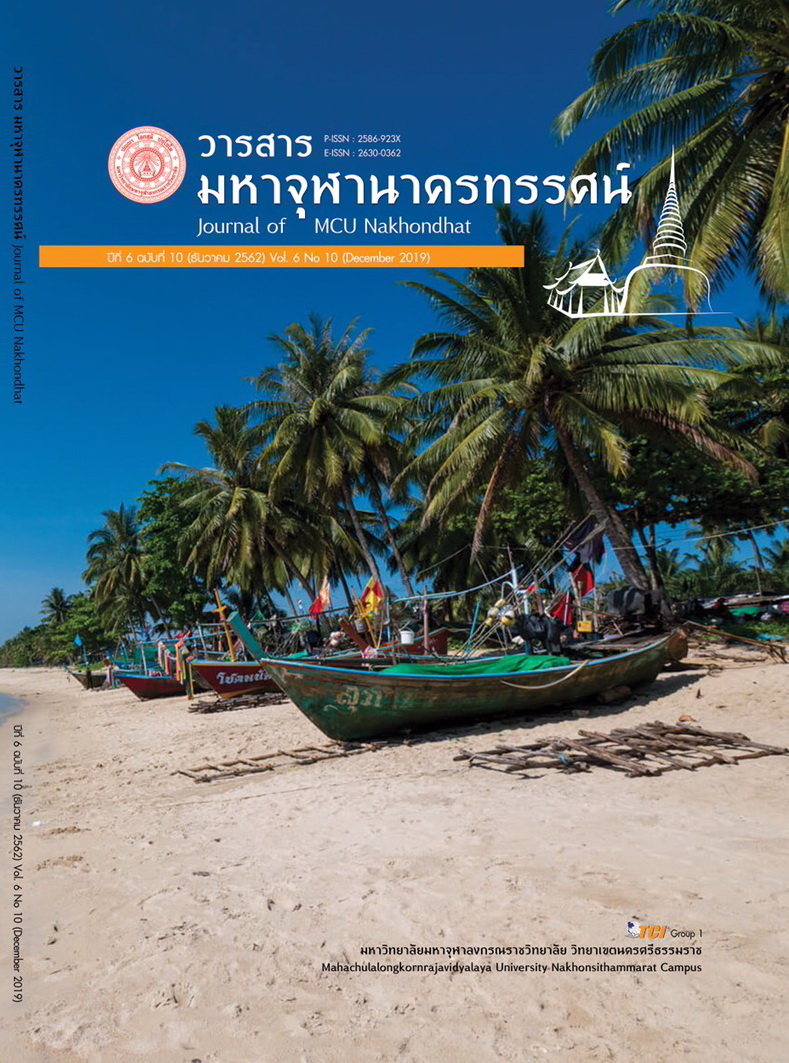THE DEVELOPMENT OF HUMAN RESOURCES COMPETENCY FOR CIVIL SERVANTS TRAINING PROGRAM BASED ON THE EXPERIENTIAL LEARNING
Main Article Content
Abstract
The study focused to examine the effectiveness of a development program to enhance human resources competency among civil servants. The researcher studied the theory, previous research and opinions of the key informants working in the research area. The questionnaire was used to collect information. Then, the factor of human resource competency was considered to design a development program with one group of twelve participants and tested the repeated measure method. The results revealed that there were five factors. 1) was social ability and ethics. 2) was human resources knowledge. 3) was thinking and data management skills. 4) was business acumen. 5) was public sector work system. The development program using in the experiment based on the experiential learning. An examination of the competency development program that revealed the comparison of the pretest, the factor of business acumen significantly changed to a higher score in the follow stage.
Article Details
References
จิราภรณ์ บุตรทอง และคณะ. (2552). ผลของโปรแกรมการจัดการความเหนื่อยล้าร่วมกับโยคะต่อความเหนื่อยล้าในผู้ป่วยมะเร็งที่ได้รับรังสีรักษา. วารสารสภาการพยาบาล, 24(4) : 29-42.
จุลนี เทียนไทย. (2553). มานุษยวิทยาธุรกิจ. กรุงเทพมหานคร: สำนักพิมพ์แห่งจุฬาลงกรณ์มหาวิทยาลัย.
ชูชัย สมิทธิไกร. (2548). การฝึกอบรมบุคลากรในองค์การ. กรุงเทพมหานคร: สำนักพิมพ์แห่งจุฬาลงกรณ์มหาวิทยาลัย.
ทิศนา แขมณี. (2560). ศาสตร์การสอน องค์ความรู้เพื่การจัดกระบวนการเรียนรู้ที่มีประสิทธิภาพ. กรุงเทพมหานคร: สำนักพิมพ์แห่งจุฬาลงกรณ์หาวิทยาลัย.
ผการัตน์ เสือเปรม และบุหงา วชิระศักดิ์มงคล. (2561). ผลการใช้กิจกรรมกลุ่มสัมพันธ์เพื่อสร้างเสริมคุณลักษณะของเด็กไทยในประชาคมอาเซียน สำหรับนักเรียนในระดับมัธยมศึกษาตอนปลาย. วารสารศึกษาศาสตร์ มหาวิทยาลัยนเรศวร, 18(3), 141-147.
ศิระ สัตยไพศาล. (2556). ผลการใช้เทคนิคการอภิปรายกลุ่มย่อยที่มีผลต่อการเรียนรู้ของผู้เรียนในรายวิชา IMG462 สัมมนาการจัดการอุตสาหกรรม สาขาวิชาการจัดการอุตสาหกรรม คณะบริหารธุรกิจ มหาวิทยาลัยศรีปทุม. ใน รายงานการวิจัย. มหาวิทยาลัยศรีปทุม.
Huang K. W. et al. (2016). New Hybrid Multiple Attribute Decision-Making Model for Improving Competence sets : Enhancing a Company’s Core Competitiveness. Sustainability, 8(2), 1-26.
Potter L. W. et al. (2003). Motivation and work behavior (7th Edition). Naw York: McGraw-Hill Irwin.
Sikora D. M. et al. (2015). Line Manager Implementation Perceptions as a Mediator of Relations Between High-Performance Work Practice and Employee Outcome. Journal of Applied Psychology, 100(6), 1908-1918.
Ulrich D. (1997). Human Resource Champion: The Next Agenda for Adding Value and Delivering results. Boston: Harvard Business Review Press.
Yew E. H. J. and Goh K. (2016). Problem-based learning : An overview of its process and impact on learning. Health Professions Education, 2(2), 75-79.

